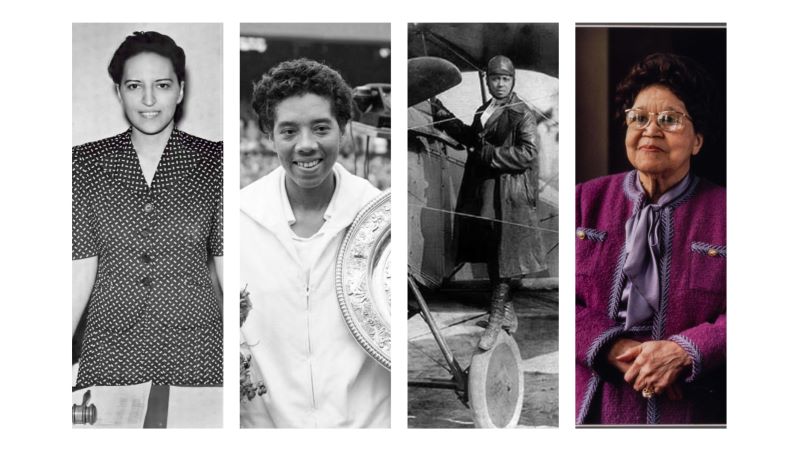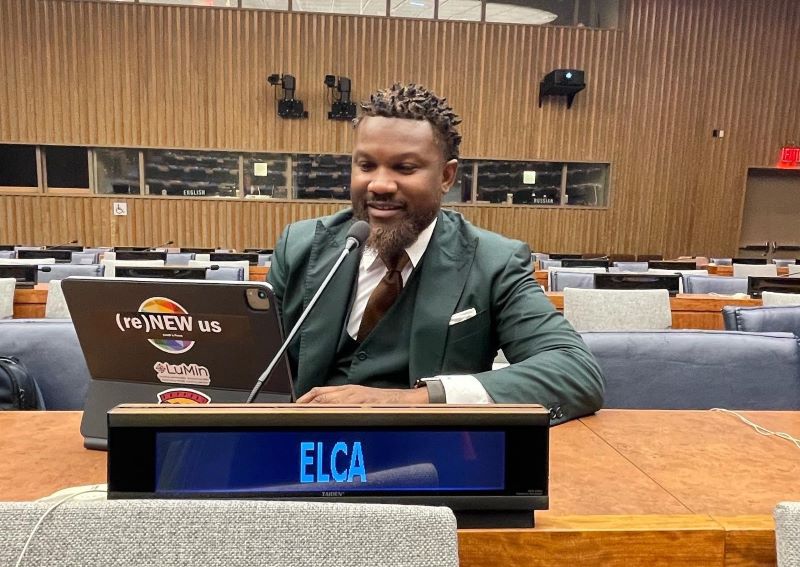Amos Hall at Lincoln University. Smallbones, CC0, via Wikimedia Commons
Founded in 1854 by John Miller Dickey, a Presbyterian minister, and his wife, Sarah Emlen Cresson, Lincoln University in Pennsylvania is the first degree-awarding school of the Historically Black Colleges and Universities (HBCU) in the United States. It was first named Ashmun Institute and was renamed Lincoln University in 1866, a year after the assassination of President Abraham Lincoln.
The school attracted highly talented students from numerous states, especially during the segregation period, which denied access and opportunities to people of color in favor of whites. It is one of the few institutions in America that can boast of leaving a profound and impactful mark on the African continent.
With a history of many firsts and a tradition of producing world leaders, Lincoln University has long functioned as a transatlantic bridge between Africa and the United States. It is little wonder that a building on campus is named after two distinguished alumni from Africa, Dr. Nnamdi Azikiwe and Dr. Kwame Nkrumah. The Azikiwe-Nkrumah Hall currently houses the Division of Institutional Advancement offices.
Over its rich 171-year history, this institution has championed higher education for African Americans and people of African descent around the globe. Among its accomplished graduates are numerous Black leaders, including prominent physicians, attorneys, ambassadors, mission chiefs, and mayors. Many of these prominent individuals have achieved significant “firsts” in their professions.
These are some of the most notable African alumni who walked the hallowed halls of Lincoln.
Dr. Nnamdi Azikiwe – First President of Nigeria
Graduated: 1930
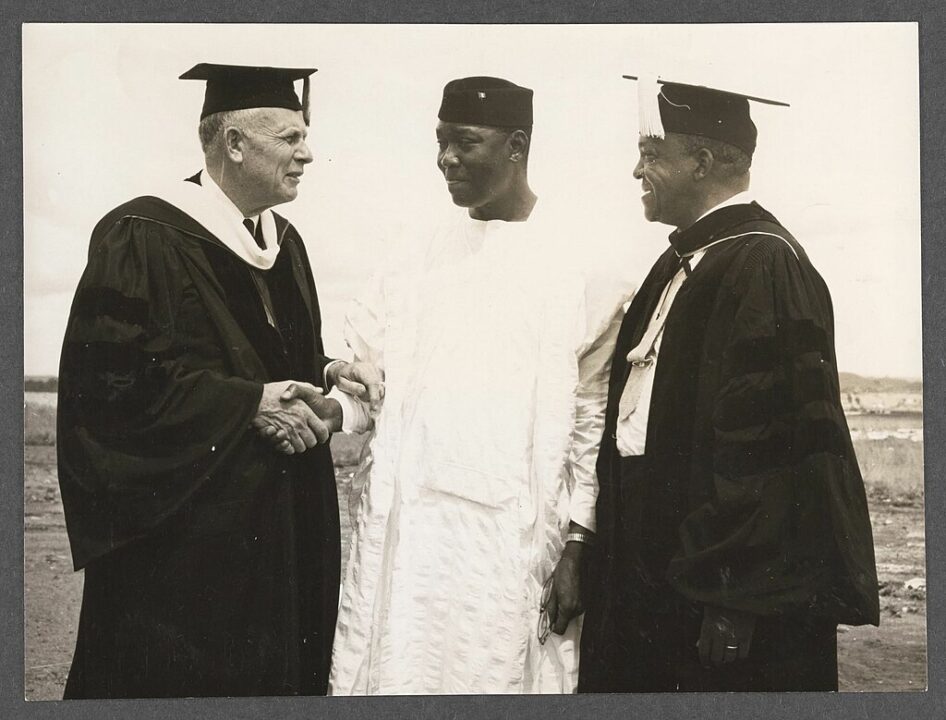
Photo source: Duckwood, E.H, Public domain, via Wikimedia Commons
Azikiwe arrived in the United States in 1925 and earned bachelor’s and master’s degrees from Lincoln University in Pennsylvania and a second master’s degree from the University of Pennsylvania. While there, he was exposed to both the African-American civil rights movement and Pan-Africanist ideas, which greatly influenced his perspective on colonialism and racial discrimination. He was also actively involved in various societies and organizations, including the African Students’ Association.
After he returned to Nigeria in 1937, he began his career in journalism and founded the West African Pilot and four other newspapers in a chain controlled by Zik Enterprises Limited. Emerging as one of the most influential figures in Nigerian politics, he played a vital role in the struggle for Nigeria’s independence from British colonial rule. He went on to become the first president of independent Nigeria in 1963.
Azikiwe, often referred to as “Zik of Africa,” championed national unity, social justice, and Pan-Africanism throughout his political career. He credited Lincoln for preparing him for a life of service to humanity. This motivated him to send his children and grandchildren to Lincoln University.
Kwame Nkrumah – First Prime Minister and President of Ghana
Graduated: 1939
Not long after Zik’s graduation from Lincoln in 1930, Kwame Nkrumah of Ghana came to the university to continue in his footsteps. Nkrumah arrived in Philadelphia in 1935 to begin undergraduate study at Lincoln University, where he completed a bachelor’s degree in Sociology magna cum laude. He also earned a BA (Theology) in 1942 and, in 1943, earned an M.Sc. Education, MA Philosophy, and completed coursework as well as preliminary examination for a Ph. D. degree at the University of Pennsylvania, USA.
While in the United States, he was exposed to the hardships that Black people in the country endured. He also engaged with prominent intellectuals of the African diaspora like C.L.R. James and Marcus Garvey.
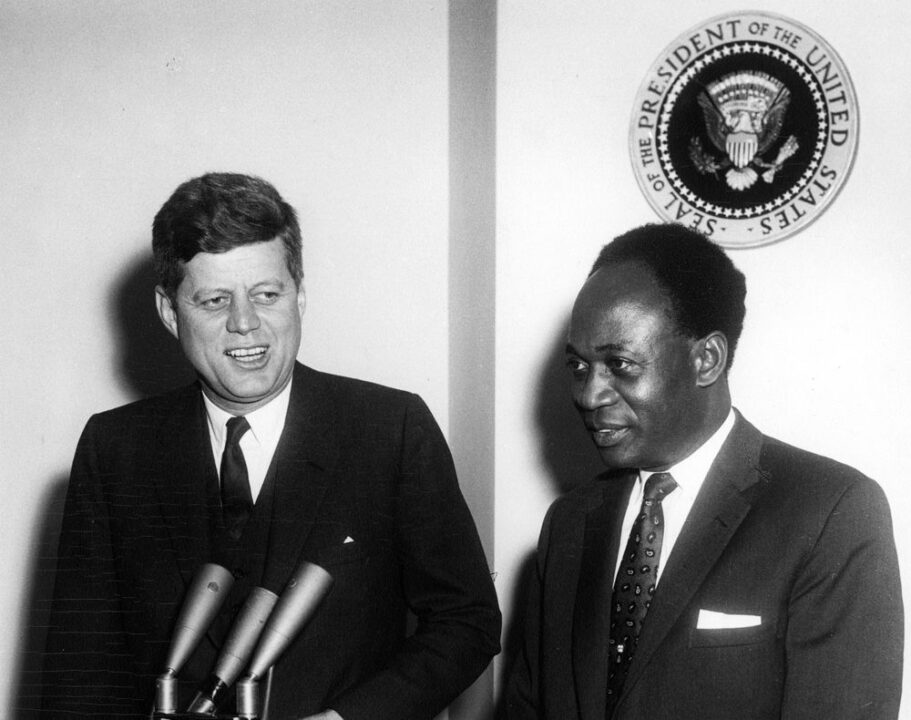
Photo credit: Abbie Rowe, Public domain, via Wikimedia Commons
In 1945, he left the United States for London and Manchester, and finally returned to Ghana in 1947. Upon his return, he joined the United Gold Coast Convention (UGCC). He later left and founded his own Convention People’s Party (CPP). He was instrumental in Ghana’s independence from Britain. After the colonial masters withdrew from the Gold Coast in 1957, Nkrumah became Prime Minister and then, in 1960, the first president of the modern nation of Ghana.
He was a founding member of the Organization of African Unity (OAU) and inspired liberation movements across Africa.
Ebenezer Ako-Adjei (Ghana)
Like others, he sought foreign education, a journey that took him to Lincoln University, where he met Nkrumah and they formed a close relationship. After one and a half years at Lincoln, he won a Phelps-Stokes Fund scholarship to attend Hampton Institute in Virginia and transferred there to complete his university degree. He was part of The Big Six, a group of six leaders who were detained during Ghana’s struggle for political independence from Britain. He also held ministerial offices.

The Gold Coast Cabinet on 6 March 1957: Left to Right front row: Hon. A. Casely-Hayford, Hon. Kojo Botsio; The Prime Minister, Hon. Kwame Nkrumah; Hon. K.A. Gbedemah, Hon. E. O. Asafu-Adjaye. Left to right back row: Hon. J.H. Allassani, Hon. N.A. Welbeck, Hon. A. Ofori Atta, Hon. Ako Adjei, Hon. J.E. Jantuah, Hon. Imoru Egals.
The National Archives UK, OGL v1.0OGL v1.0, via Wikimedia Commons
Edward Wilmot Blyden III – Sierra Leonean Diplomat and Political Scientist
Graduated: 1948
Professor Blyden, grandson of the legendary Edward Wilmot Blyden, earned his Bachelor of Arts degree from Lincoln University. He returned to Sierra Leone in 1954 and took up a role as head of Extra Mural Studies at Fourah Bay College.
Continuing his grandfather’s legacy of Pan-Africanism, he challenged the British colonial administration and was subsequently invited by Nnamdi Azikiwe, a fellow Lincoln alumnus, to teach at the new University of Nigeria at Nsukka, which he founded in 1955.
He soon became deeply involved in the political movement for Sierra Leone’s independence, reflecting Lincoln’s emphasis on intellectual and public service. In 1971, Professor Blyden represented Sierra Leone as ambassador to the Soviet Union and later to the United Nations.

Edward Blyden Library, CC BY-SA 3.0, via Wikimedia Commons
Saara Kuugongelwa-Amadhila – The Prime Minister of Namibia
Graduated: 1994
Saara Kuugongelwa-Amadhila, who went into exile at the age of 12 years to join the liberation struggle for her country, studied for her first Degree at Lincoln University, where she graduated with a Bachelor of Science in Economics, summa cum laude (Salutatorian).
After successfully completing her degree program at Lincoln, Saara returned to Namibia, where she rose to one of the highest political offices. She has been a member of the National Assembly of Namibia (like a parliament) since 1995. She served here until 2003, when she was appointed as Minister of Finance. She made history in 2015 as the first woman to become Prime Minister of Namibia, a testament to the leadership qualities fostered at Lincoln and how it transforms its students into trailblazers or global leaders in their respective fields.

Photo credit: Instagram / saara_kuugongelwa_amadhila
Tjama Tjivikua – First Rector of Polytechnic of Namibia
Graduated: 1983
Tjivikua left Namibia in June 1979 to study chemistry in the United States at Rockland Community College (1979–1980) and then Lincoln University (1980–1983). He was a well-recognized researcher and worked as an assistant professor of chemistry at Lincoln University from 1990 to 1995, after which he returned to Namibia, where he had received a personal invitation to take up the challenging task of setting up a Technikon University in the country. He became the first rector of the Polytechnic of Namibia and the founding Vice-Chancellor of the Namibia University of Science and Technology.
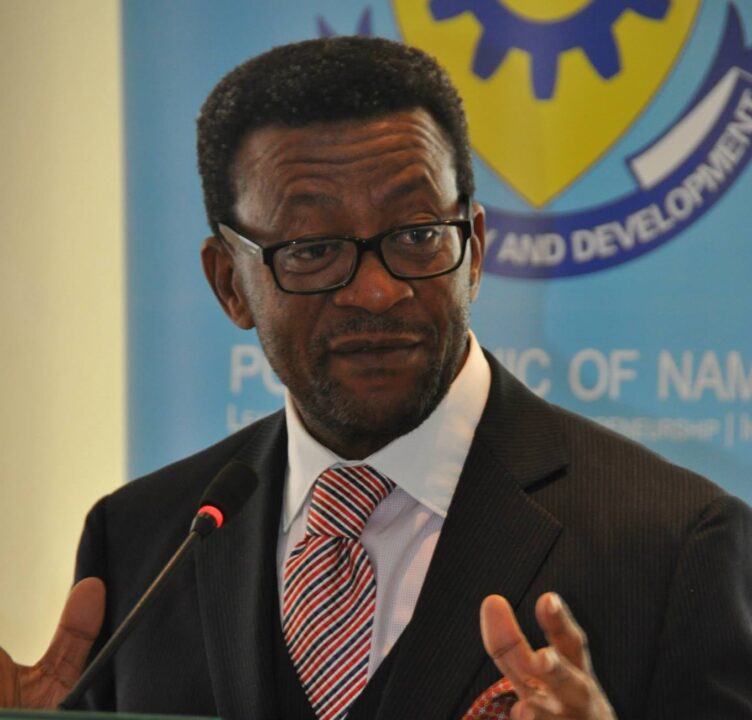
Photo source: Facebook / Namibia University of Science and Technology – NUST
Sibusiso Vil-Nkomo
Graduated: 1981
Professor Vil-Nkomo obtained his bachelor’s degree in Public Affairs and Economics magna cum laude at Lincoln University, USA, in 1981. He was the founder of the first PhD in Public Affairs on the African continent in the School of Public Management and Administration. In 1994, he was appointed as Public Service Commissioner by then-President Nelson Mandela after the first democratic elections in South Africa, and later joined the faculty of the University of Pretoria, where he went on to become the first Black dean in that university’s history.
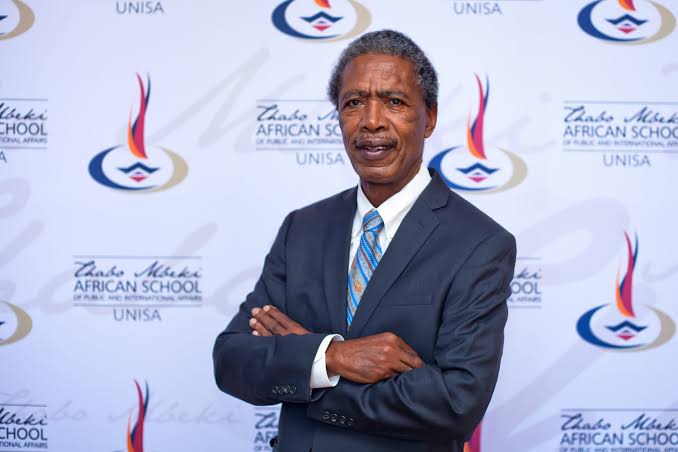
Image: freefutures.org


